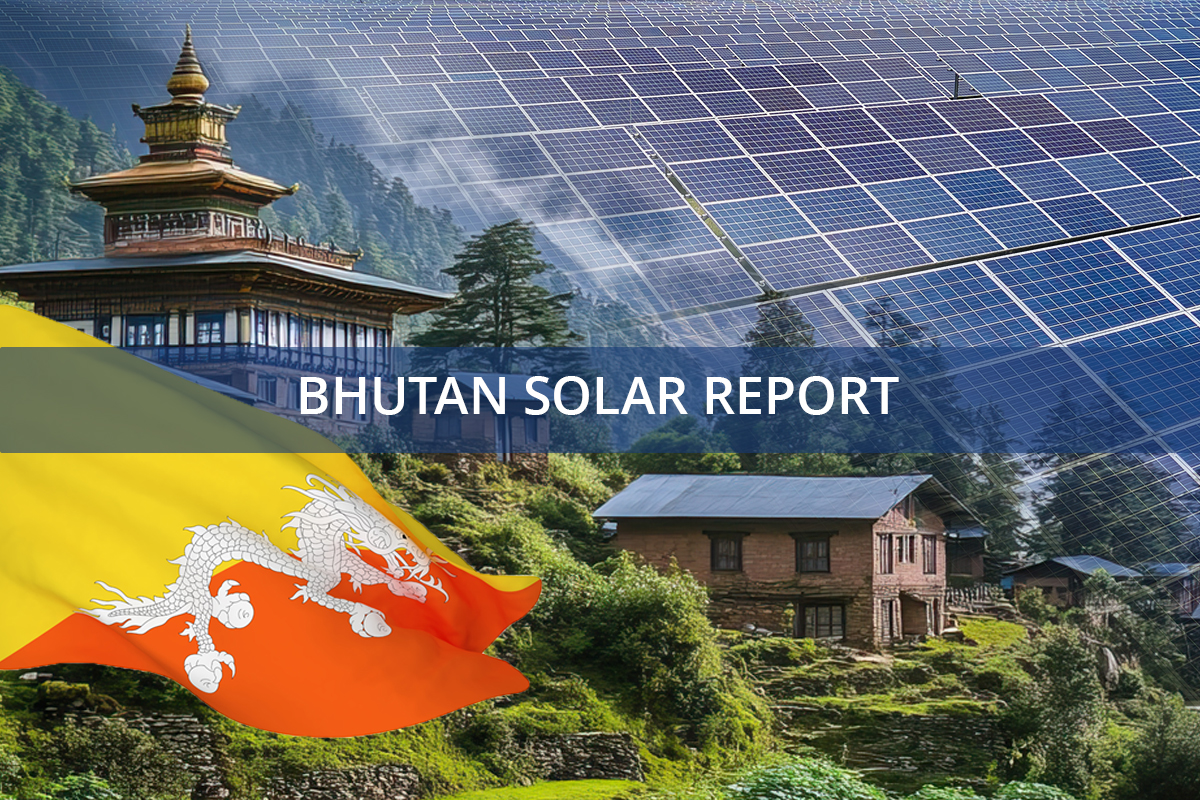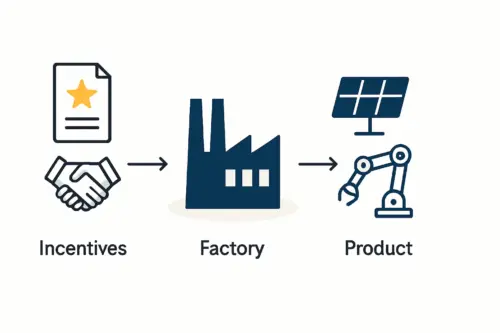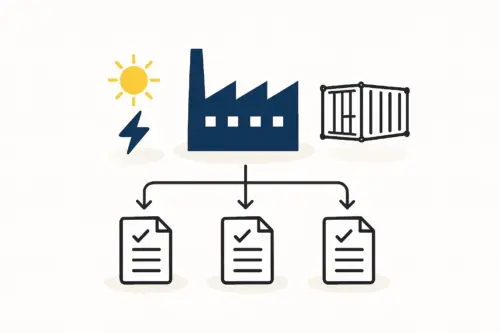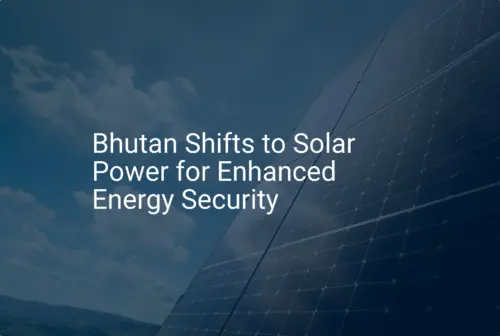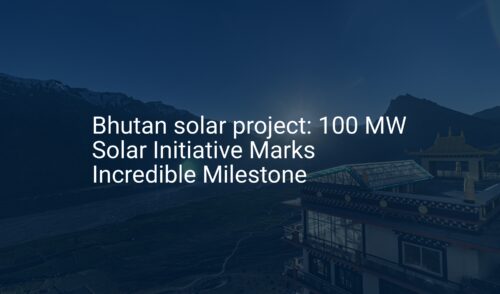For the international entrepreneur, Bhutan offers a unique proposition. Renowned for its principle of Gross National Happiness and its status as the world’s first carbon-negative country, the kingdom is now actively seeking to diversify its economy through sustainable industries.
This creates a compelling opportunity for any business considering entry into the solar module manufacturing sector. Turning this potential into a successful enterprise, however, requires a clear understanding of the kingdom’s legal and financial regulations.
This guide provides a structured overview of Bhutan’s Foreign Direct Investment (FDI) policy, focusing on the key aspects of establishing a solar module production facility. It covers the ownership rules, application processes, and financial incentives that underpin any investment decision.
Table of Contents
Why Bhutan? The Strategic Context for Solar Investment
Beyond the regulatory details, it is important to understand the strategic vision driving Bhutan’s economic policy. The government, through its state-owned holding company Druk Holding and Investments (DHI), is focused on building a self-reliant economy. The upcoming 13th Five-Year Plan emphasizes green energy, technology, and high-value manufacturing as pillars of future growth.
Investing in solar manufacturing in Bhutan aligns directly with these national priorities. It supports the “BhutanBelieve” brand, which promotes the country as a destination for mindful and sustainable business. Furthermore, Bhutan’s strategic location offers potential access to the vast markets of India and Southeast Asia. An investment here is not merely a financial transaction; it is a partnership with a nation committed to a sustainable future.

The Legal Framework: Bhutan’s FDI Policy 2019
The primary document governing foreign investment is the FDI Policy 2019. This framework is intended to be welcoming while ensuring that investments contribute positively to the local economy and environment. For a potential solar manufacturer, the most critical points are the ownership structure and capital requirements.
Permitted Activities and Ownership Structures
The Bhutanese government classifies economic activities into different sectors. Manufacturing, including the production of solar modules, is designated a “Priority Sector,” which grants significant advantages to foreign investors.
The policy, however, mandates a partnership model. A foreign investor can hold a maximum of 74% equity in a manufacturing enterprise, while the remaining 26% must be held by a Bhutanese national or a Bhutanese-owned entity. This structure aims to foster local participation and knowledge transfer. Identifying and securing a reliable local partner is therefore not just a legal formality but a foundational step for long-term success.
Minimum Investment and Capital Requirements
To ensure the viability and commitment of proposed projects, the FDI policy stipulates minimum investment levels. For a project in the manufacturing sector, the total cost must be at least Nu. 50 million (approximately USD 600,000).
Within this total, the minimum foreign equity contribution is set at Nu. 25 million (approximately USD 300,000). This capital must be remitted from abroad through official banking channels. These figures provide a clear financial baseline for initial planning.
The Application and Approval Process: A Step-by-Step Guide
Navigating the administrative process for FDI in Bhutan is systematic, involving approvals from several government bodies with specific mandates.
Step 1: The FDI Registration Certificate
The first formal step is to apply for an FDI Registration Certificate from the Ministry of Industry, Commerce and Employment (MoICE). The application requires a detailed project proposal outlining the business case, technical specifications, financial projections, and expected economic contributions. A robust proposal is essential, as it forms the basis for the government’s evaluation. Success at this stage depends on developing a viable business plan that aligns with Bhutan’s developmental goals.
Step 2: Company Incorporation
Once the FDI Registration Certificate is issued, the investor can incorporate the company through the Office of the Registrar of Companies. This process involves submitting the necessary legal documents, including the joint venture agreement between the foreign and local partners.
Step 3: Sectoral Clearances
After incorporation, the new entity must obtain clearances specific to its industry. For solar manufacturing, the most important of these is the Environmental Clearance from the National Environment Commission (NEC). Given Bhutan’s strong environmental standards, the proposal must demonstrate that the manufacturing process will adhere to strict environmental, health, and safety regulations.

Fiscal Incentives and Financial Regulations
Bhutan offers a competitive package of fiscal incentives to attract investment in priority sectors like manufacturing. These measures help reduce the initial financial burden and support long-term profitability.
Tax Incentives for Manufacturing
New manufacturing businesses in Bhutan are eligible for a full income tax holiday for 10 years. This means the company is exempt from paying corporate income tax for its first decade of operation.
Additionally, the government provides exemptions on customs duties and sales tax for importing the plant and machinery essential for setting up the factory. This significantly reduces initial capital expenditure and improves the project’s financial feasibility.
Repatriation of Profits and Dividends
A key concern for any foreign investor is the ability to repatriate profits. Bhutan’s policy permits the repatriation of dividends, profits, and proceeds from the sale of shares. This process is governed by the Royal Monetary Authority (RMA), Bhutan’s central bank, and is allowed after the company has cleared all applicable domestic taxes. The procedure is well-defined, ensuring transparency and predictability for investors.
Navigating Potential Challenges
While the policy is encouraging, prospective investors should be aware of several practical challenges.
- Local Partnership: The requirement for a 26% local partner necessitates careful due diligence. A strong local partner can be an invaluable asset for navigating local customs, regulations, and business networks. Based on experience from J.v.G. turnkey projects in other emerging markets, this partnership is often a critical success factor.
- Logistics: As a landlocked nation, Bhutan relies on road transport through India for logistics. Supply chain planning for raw materials and finished goods requires careful consideration and coordination.
- Skilled Labor: Although Bhutan has a growing educated workforce, specialized technical skills for solar manufacturing may be limited. A business plan should include provisions for the technical training and skills development of local employees.

Frequently Asked Questions (FAQ)
Q: Can a foreign investor own 100% of a solar factory in Bhutan?
A: No. For manufacturing projects, foreign ownership is capped at 74%. A minimum of 26% must be held by a Bhutanese partner.
Q: What is the minimum financial investment required to start?
A: The total project must be valued at a minimum of Nu. 50 million (approx. USD 600,000), with the foreign investor’s equity contribution being at least Nu. 25 million (approx. USD 300,000).
Q: How long is the tax holiday for a new solar manufacturing business?
A: New manufacturing businesses are eligible for a 10-year income tax holiday from the start of operations.
Q: Is it difficult to repatriate profits from Bhutan?
A: The process is regulated but straightforward. Repatriation of profits and dividends is permitted through the Royal Monetary Authority (RMA) once all local tax obligations have been met.
Q: Are specific environmental permits required for a factory?
A: Yes, an Environmental Clearance from the National Environment Commission (NEC) is mandatory before operations can begin.
Conclusion: A Foundation for Success
Bhutan offers a rare combination of political stability, a deep commitment to sustainability, and attractive financial incentives for foreign investors in the solar manufacturing sector. The country’s FDI framework is structured, transparent, and built to foster long-term, mutually beneficial partnerships.
Successfully navigating this landscape requires thorough preparation, a firm grasp of legal requirements, and a strong local partnership. By understanding these regulatory foundations, an entrepreneur can take the first critical step toward establishing a successful and impactful enterprise in one of the world’s most unique investment destinations. The next phase involves detailed financial modeling and technical planning, building upon this essential legal groundwork.

